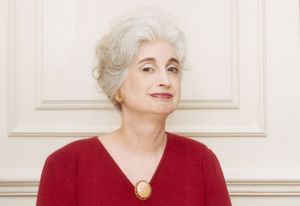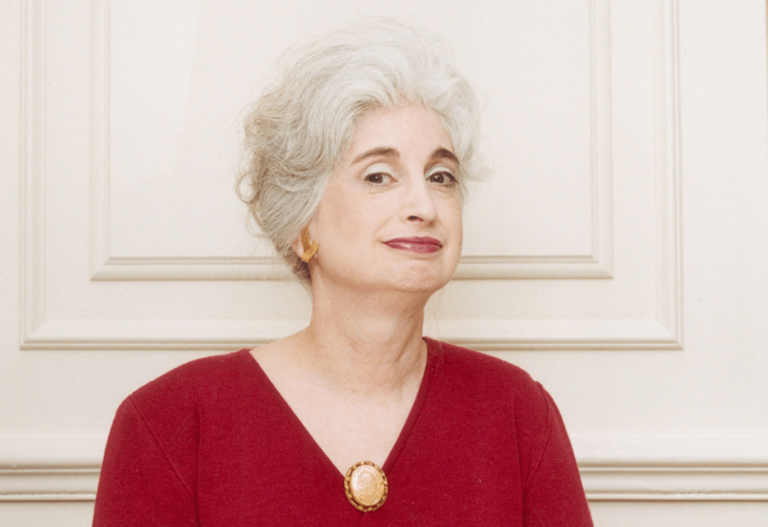SAINT-DENIS, France–She stood at the top of the Stade de France long jump runway as a postcard Parisian day slipped into an electric Olympic evening, the place she was always supposed to be.
A place Tara Davis-Woodhall, a prisoner of her own darkness, did not, could not envision only a few years ago.
“I honestly didn’t make myself to make it to 24, 25,” she said.
Yet here was Davis shining, embracing the glare of the world’s biggest stage Tuesday night. She took off down the runway and into flight, sailing, soaring really, above her demons, her doubters, free from the depression and fear that kept her from being her true self, that held her in the darkness.
She finally touched down to a roar that told her – before any formal measurement would – that she had landed in the lead of the Olympic Games long jump competition.
Davis, prep superstar at Agoura High School, Olympic lock at 17 and 18, written off at 19, blasted into first place in the second of eight rounds and never relinquished the lead.
At 25, Davis was an Olympic champion.
“It’s been a very long journey,” she said. “I’ve overcome so much to get to this point and I don’t think I realize right now I’m the Olympic champion.”
Davis-Woodhall realized a dream she had since she was a little girl, a dream that had become an Olympian burden when it became an expectation of many others in the sport when she was still just a teenager. She did it by dominating the final from the opening round.
Davis-Woodhall led off with a 22-feet, 9-inches jump that was later eclipsed in the first round by Jasmine Jones of the U.S. at 22-10. Davis-Woodhall regained the lead for good with a second-round leap of 23-1 3/4 and then extended it in the third round with the night’s best jump 23-3 1/2.
Germany’s Malaika Mihambo, the defending Olympic champion, moved into second with a 22-10 3/4 leap but never got any closer.
Davis-Woodhall turned her back to the runway as Mihambo, jumping next to last, prepared for her final attempt. But Mihambo never left the ground, running through the pit after getting her steps off.
Again the crowd informed her of her fate.
“I never let anything get me down (this season),” Davis-Woodhall said. “I tried so hard to just keep on being positive this year, keep on being motivated. That motivation turned into manifestation, and manifestation turned into reality, and the reality is I’m an Olympic gold medallist.”
Davis-Woodhall set the national high school long jump record and won the World Youth Championships at Agoura. In her final State meet she won the 100-meter hurdles, long jump and triple jump.
But in the ensuing years, there were several moments where she felt like she was done. And not just with track.
“Had a lot of depression. I did not want to be here,” she said. “I couldn’t see myself being Olympic champion.”
She struggled at Georgia where she felt pushed to train and compete through injuries and unsupported in her mental health struggles by UGA coach Petros Kyprianou.
“So much happened there,” Davis-Woodhall said referring to Georgia. “That’s where my depression really started. My parents were getting a divorce. The fires that were happening in California were close to home. A lot of my friends were having to leave, evacuate. My mom was there alone. I couldn’t fly there because everything was shut down so I was very overwhelmed with everything, and with my parents’ divorce, I wasn’t there to mediate or help my mom or help my dad at the toughest times of their lives.
“My coach said he was understanding but I was so depressed and he was always like, ‘Why are you always so sad, why do you always have a long face?’ It was like I’ve told you everything that’s going on in my life. I don’t think you really understand like, how this is affecting me.”
The divide between Kyprianou and Davis grew even wider the following fall, when Kyprianou downplayed back pain that had been bothering Davis for weeks.
“He always told me it was just muscle spasms,” Davis said. “I never got an MRI. I never got an X-ray on it. It was just not a positive place for me at the time.”
The injury was later diagnosed as not back spasms but a fractured vertebra.
“It’s one of those things as an athlete you want to be tough, you want to be perceived as competent and when you think there’s something wrong with your body and then you go and try to open up to somebody about it or complain about it and try and find a solution for it, (and they respond) like, ‘Hey, just you, you’re overreacting, you’re fine, just push through it,’” her husband Hunter Woodhall, a Paralympian sprinter, said. “It’s then you’re in a mental battle with yourself of ‘Man, am I just overthinking this? Am I just being a baby? Or is there something actually wrong?’ In Tara’s case, she is so tough, she is so mentally strong, her thought process is, ‘Ok, let’s just push through this,’ and you can continue pushing what at the time was a fracture in her back, a very big deal.”
An even bigger deal for Kyprianou, Davis said, was her admission that she was seeing a therapist to deal with her depression.
“The back was definitely the final straw and when I told him I was seeing a therapist he told me that was really bad and he told me I needed to transfer,” Davis said. “That was definitely the icing on the cake, cherry on top where I was like, ‘OK, I’m absolutely leaving this place.’ And I loved the University of Georgia so much. It was hard to leave. I made friends like no other. I had so many friends. Loved the city of Athens.
“But the toxic environment with my coach and how we would go back and forth all the time. That is not how an athlete and coach should be.
“I never asked questions after that. I’m trying to get my mental health so I can stay here, I’m trying to understand why I’m going through all these things. He told me that’s bad and that I needed to transfer or resign. I’m not sure how to interpret it. I’ll leave, don’t even worry about it.”
She transferred to Texas but continued to struggle with injuries and depression.
“I was in a really dark place,” she said. “At Georgia and when I was at Texas. Mentally I was in a dark place. I just didn’t want to be here anymore and I had a lot of people in my corner to help me to go through that. And I think that’s when I realized, Ok, this is my choice. We can either continue to be sad and be in bed all day or we can go outside and enjoy life. A life that we only have one time to live. A life that you never know when it’s gone.
“Getting to my lowest point in my life. Not leaving my room for a week. And just being super sad. I had the choice to become happy. You have the choice to choose joy. You have the choice to be anyone you want in the world. And until you take that next step, until you tell yourself it’s OK to be happy or it’s OK to do these things you’ve dreamed of that’s when I saw the light again. There is life out there to be lived.”
By the fall of 2020, feeling isolated from her Texas teammates, she came to a critical juncture in her career, in her life.
“I wanted to quit track,” Davis-Woodhall said. “I actually made a pros and cons list. Set date December 7th. If I still have this feeling, then I will. Giving myself an opportunity to really figure out what I wanted to do with myself.
“I had never had a chance to make decisions on my own. And that was the biggest decision. And I didn’t and that’s when the 2021 season kicked off.
“And that’s genuinely when my life changed.
“I could not see myself being Olympic champion up until I stepped out of bed and that’s when I said, ‘I’m going to do this.’”
She broke the collegiate indoor record with a 22-9 jump and then broke Jackie Joyner-Kersee’s 36-year-old collegiate outdoor mark with a 23-5 1/2 leap, at the time the world’s longest jump since the 2016 Olympic Games.
Davis-Woodhall was sixth at the Tokyo Games and then second at last summer’s World Championships.
“Getting second place, it was almost a blessing in disguise,” she said. “I didn’t realize how much more I could work. I thought I was doing everything correct but then I got first place snatched away from me, I was like, ‘Oh, my gosh, we can’t have that happen.’ After I celebrated my second I was like, ‘OK, how am I going to get to my main goal, which is Olympic gold.’ I had to completely scratch everything, do this and to the next level, and I have did it to the next level, in training, in sleep, in diet., everything with the help of my husband. We’re both doing it at the same time.
“As you can tell my season has changed a lot. The measurements of my jumps have jumped and that’s because of what I’m doing differently. My mental is different. My inspiration is different. I can actually be myself. I couldn’t be myself for a while and it sucks. It sucks not being to be able to just be me and now that I am I’m not going back and I’m just going to be myself for the rest of my life.
Related Articles
Olympics TV schedule for Friday, Aug. 9
Curry lifts Team USA to thrilling comeback over Serbia in Olympic semifinal
Olympians say conversations on sports, mental health are changing
Lyles finishes 3rd in Olympic 200M, reveals he has COVID; McLaughlin-Levrone sets new world record
French runner Alice Finot proposes to her boyfriend with an Olympic pin after her steeplechase race
“You don’t see a lot of people like me with my energetic personality. I think people are a little frightened or maybe a little confused on how someone can be so free. Coaches don’t like it. They want me to be focused. The interet didn’t like it if I was doing too much, or I was not focused enough. Those people are just not, they’re not me, they’re not doing what I’m doing. And they have no say until they’re doing what I’m doing.
“Getting to my lowest point in my life. Not leaving my room for a week. And just being super sad. I had the choice to become happy. You have the choice to choose joy. You have the choice to be anyone you want in the world. And until you take that next step, until you tell yourself it’s OK to be happy or it’s OK to do these things you’ve dreamed of, that’s when I saw the light again. There is life out there to be lived.”
In March she won the World Indoor title.
And now on an electric night at the end of a postcard day, at 25, she was Olympic champion.
“I would never have fulfilled my dream if I quit,” she said. “My first Olympics that I watched was Beijing (2008), I saw these guys drumming and thought that’s cool. Olympic gold has always been my dream. Little Tara, you freaking did it.”












